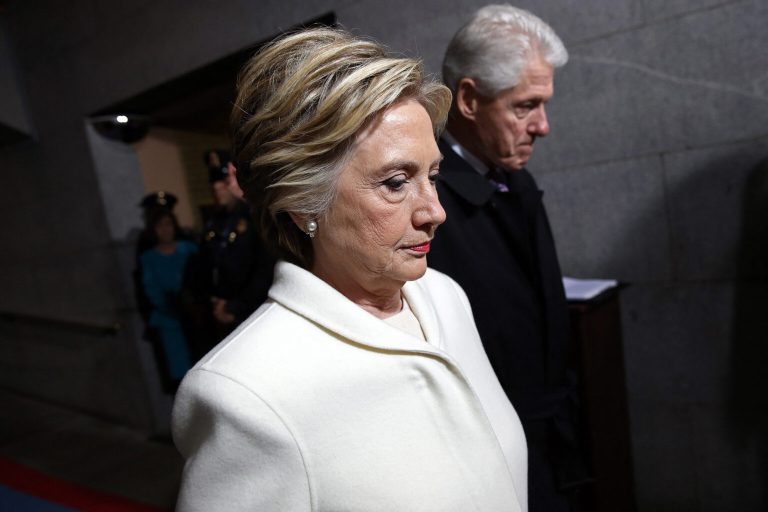
THE second joint pre-election assessment mission of the National Democratic Institute, NDI, and International Republican Institute, IRI, to Nigeria has expressed concerns over the upsurge in politically-motivated attacks across the country, warning that this negative trend portends grave danger to the 2023 elections.
The Senior Fellow for Africa Policy Studies at the US Council on Foreign Relations, Ambassador Michelle Gavin, said this at a press briefing on Friday against the backdrop of the multiple attacks on INEC offices and violent rivalry among political parties in the country despite the signing of the peace accord by most presidential candidates last September.
Other members of the joint delegation present at the conference include Judge Dhaya Pillay, Commissioner at the Electoral Commission of South Africa; Ellen Dingani, Programmes Director of the Zimbabwe Election Support Network; Gregory Kearns, IRI Director for Africa; and Dr. Sophia Moestrup, NDI Deputy Director for Central and West Africa.
Gavin, who led the pre-election assessment mission, said fears over the forthcoming election have heightened in Nigeria over the past few months even as she called on all stakeholders, particularly politicians and political parties to commit to peaceful conduct before, during and after the elections.
She said, “The increase in politically motivated violence has sparked fears that a violent campaign period could be a precursor to significant post-election violence, should the electoral process not be viewed as credible or if losing parties do not accept the outcome.
“The delegation notes the consensus among stakeholders that insecurity is the primary risk factor for the 2023 elections. Nigeria is facing record levels of insecurity in 2022 and conflict has become more geographically widespread and more complex. Increasing banditry and attacks by Boko Haram and Islamic State West Africa Province (ISWAP) in the North East and North West threaten to undermine logistics and strain capacity to secure elections.
“Continuing conflict between herder militias and farming communities drives displacement and exacerbates sectarian tensions in states that are likely to be key electoral battlegrounds. Secessionist agitation by Indigenous People of Biafra (IPOB)/Eastern Security Network (ESN) in the South East threatens to depress voter turnout. If the election is perceived to be illegitimate, the group could gain significant traction, and potentially become directly involved in post-election violence.”
Gavin lamented that the proliferation of informal security elements further increases opportunities for election malfeasance; stressing that election related violence in Nigeria has increased significantly over the past year. According to her, this year, Nigeria has faced more than twice the level of election violence experienced during the same period prior to the 2019 elections.
She added, “Despite most presidential candidates signing the first peace accord facilitated by the National Peace Committee on September 29, 2022, since then there have been at least 50 reported incidents of electoral violence, occurring across 40 local government areas in 24 states. Attacks on INEC offices occurred in at least four states since the signing of the peace pledge — including an attack on an INEC office in Imo during the delegation’s presence in the country.
“While INEC indicated that materials destroyed in these recent attacks could be replaced, they noted that it would be much more difficult to replace materials if such attacks continue nearer to election day. Many incidents of election violence witnessed since the signing of the peace accord were egregious, public displays of partisan violence carried out by supporters and operatives of major political parties. The delegation heard widespread concern about the potential for strategic violence to be employed on election day to suppress the vote in strongholds of opposing parties.”
The joint pre-election assessment mission of the two US insititutes also stated that violence against politically active women is similarly a major concern, affecting women’s participation in the electoral process; noting that the gruesome murder of the Labour Party’s Women Leader in Kaduna a fortnight ago. It recalled that the Inspector-General of Police, Usman Baba, recently said the police received reports of state governors using “thugs” and informal security outfits to disrupt campaign activities of opposing parties, and called on governors to remain neutral throughout the electoral process.
“On a positive note, security officials have committed to removing police commissioners in states where their actions are influenced by political bias or corruption, and the delegation was informed that two police commissioners were recently removed for these reasons,” the body added.
Consequently, the joint pre-election assessment mission advised candidates and political parties to adhere to the principles in the peace pledges facilitated by the National Peace Committee ahead of the elections, and refrain from engaging in, or encouraging violence against electoral opponents. It also recommended that political parties should also sign a second peace pledge to renew their commitment to peaceful elections and to sanction supporters who commit electoral offenses.
(Vanguard)







